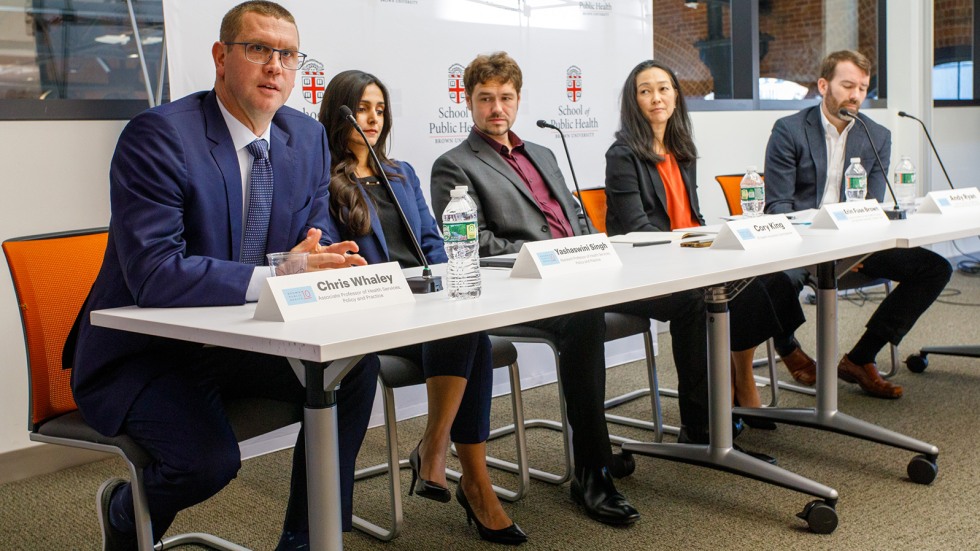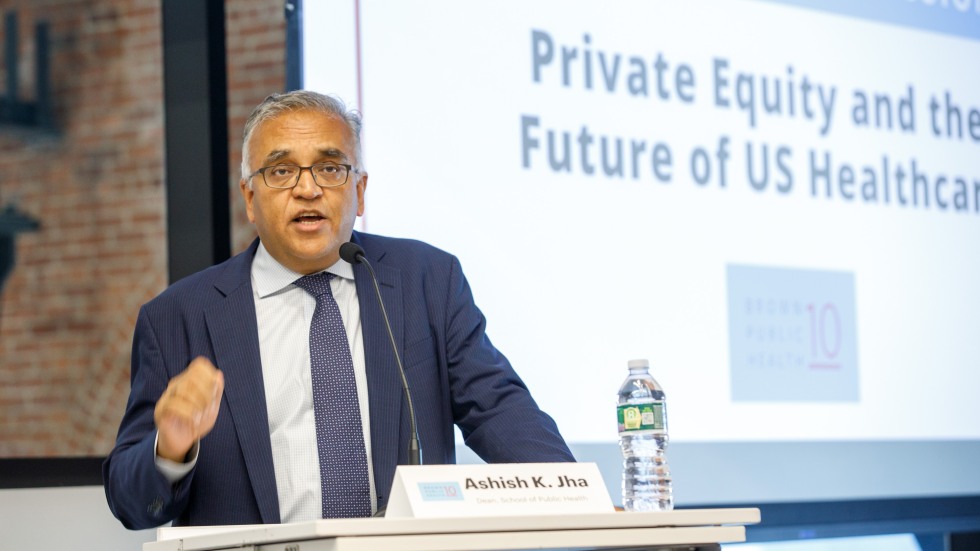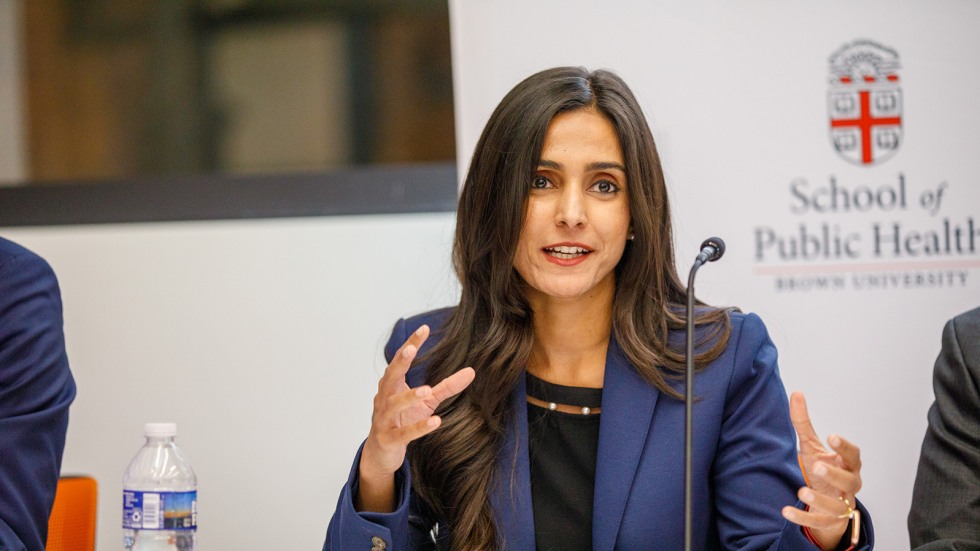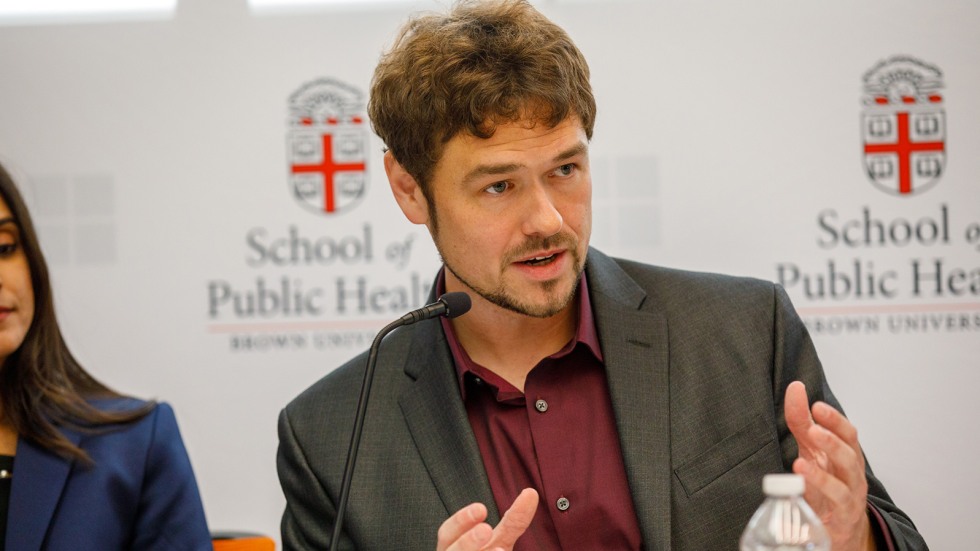PROVIDENCE, R.I. [Brown University] — Unchecked and ineffective health care spending is the biggest social policy challenge facing the U.S., says Dr. Ashish K. Jha, dean of the School of Public Health at Brown University. Not the biggest health policy challenge, Jha stressed, but the toughest social policy challenge — one that’s costing $4.3 trillion, close to 20% of the United States’ gross domestic product.
While there are no silver bullets, Jha says there are definitely better, more data-driven ways to attack what he calls a “behemoth of a problem.” And that’s the idea that underpins the new Center for Advancing Health Policy through Research at Brown’s School of Public Health.
The dean formally launched the center in front of a packed room of faculty and students from public health and medicine, as well as policymakers, community leaders and legal scholars. The early-October launch event took place at South Street Landing in Providence’s Jewelry District — within easy walking distance from the School of Public Health, the Warren Alpert Medical School and the city’s major hospitals.
“The Center for Advancing Health Policy through Research is predicated on the idea that if we're going to make progress that's sustainable, that's actually going to move the needle, it has to be data-driven,” Jha said. “Because if you go to Washington and you lay out this problem, you'll immediately get everybody giving you their favorite solution. And almost all those solutions are data-free.”
The center was approved by Brown’s Academic Priorities Committee in June, and was officially up and running with the start of the 2023-24 academic year.
Brown already had top researchers in this field, Jha said. They are now joined by Andrew Ryan, director of CAHPR (pronounced “CAY-per”) and a professor of health services, policy and practice who has been at the forefront of health policy research for over a decade.
“The mission of CAHPR is to generate the highest-quality evidence to advance and form discussions around health care, affordability, access and value in the United States, and to translate this information toward policy change,” Ryan said.
What makes CAHPR unique, Ryan said, is a focus on translating research into policy. Often, he noted, scholarly research remains sequestered in peer-reviewed journals; it doesn't get to the policy makers and community stakeholders who are trying to improve health care systems. CAHPR scientists hope to do more than conduct great research; they also hope to influence health policy at the national and state level.



